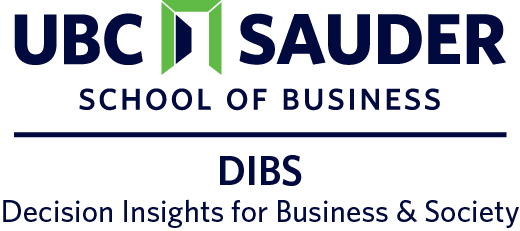The Society for Judgment and Decision Making (SJDM; https://sjdm.org/) and the European Association for Decision Making (EADM; https://eadm.eu/) are pleased to announce their next joint virtual symposium to strengthen ties between the two communities.
The symposium will take place on June 13th, 2024, from 7am to 9am PDT via https://uchicago.zoom.us/j/9816652650?pwd=amFJMUpXRkU2Wk1sWThTV2k2aGh1UT09
“Honesty and Everyday [Im]Moral Behavior”
- 07:00 to 07:25 am – Ori Weisel (Title: Corrupt Collaboration Around the Globe)
- 07:25 to 07:50 am – Valerio Capraro (Title: Corrupting the prosocial people: does cooperation framing increase bribery engagement among prosocial individuals?)
- 07:50 to 8:10 am – Breakout rooms with networking and discussion
- 8:10 to 8:35 am – Emma E. Levine (Title: Difficult conversations and the psychology of honesty)
- 8:35 to 9:00 am – Q&A and discussion
The abstracts for the talks:
Ori Weisel (Title: Corrupt Collaboration Around the Globe)
We measured individual (dis)honesty (using a variation of a die-rolling task), cooperativeness (using a public good game), dyadic dishonesty (using a variant of the dyadic dishonesty task), and a host of individual measures in 20 countries (N≅11,500). The tendency to engage in corrupt collaboration varies between societies. It is positively related to individual dishonesty – people who tend to lie for personal profit also tend to engage in dyadic dishonesty; and negatively related to cooperativeness. The latter result is of particular interest: Although a successful, mutually beneficial relationship with a partner, which is based on joint dishonesty, clearly requires cooperation, a cooperative disposition, which is related to a more general tendency toward moral behavior, seems to hinder such joint, corrupt enterprises.
Valerio Capraro (Title: Corrupting the prosocial people: does cooperation framing increase bribery engagement among prosocial individuals?)
Cooperation—although typically connoted with prosociality—plays a crucial role in facilitating bribery. Here, we hypothesize that emphasizing the cooperative aspect of bribery increases bribery engagement, and that this is the case especially for prosocial individuals. Supporting our hypotheses, we present a pilot study showing that cooperation (vs. bribery) framing increased the probability of offering and accepting bribes by 113% and 81%, respectively (N = 756), and that cooperation (vs. bribery) framing increased the probability of offering and accepting bribes among participants with higher (rather than lower) levels of Honesty-Humility.
Emma E. Levine: (Title: Difficult conversations and the psychology of honesty)
From delivering negative feedback and confronting discrimination in the workplace to discussing death and illness with children, loved ones, and patients, difficult conversations are a necessary and challenging part of social and organizational life. Difficult conversations are any conversations in which honesty is aversive. To understand difficult conversations, then, we must first understand the psychology of honesty. When do people believe they should be honest, but struggle to do so? I begin answering this question by discussing research on moral judgments of honesty and deception. Then, I explain how these insights can be applied to the study of difficult conversations. I introduce the Honesty-Harm Conflict (HHC) model of difficult conversations to explain how the perceived costs and benefits of honesty influence difficult conversations across people, context, and time. The HHC model explains when and why these challenges loom larger and points to promising new interventions to overcome them. In doing so, this work deepens our understanding of honesty, self-regulation, and everyday harm, and provides practical guidance on managing, mentoring, and promoting others’ growth.
